Entourage Music & Theater Ensemble | Interview | “The idea was to create a music free of identifiable genres”
Like contemporaries Popol Vuh, Sandy Bull, and Don Cherry, Entourage fused jazz and strains of traditional music from around the world to form a singular, kaleidoscopic vision of musical liberation.
In 1976 the Entourage Music and Theater Ensemble reached a creative zenith. The nomadic troupe had just released ‘The Neptune Collection’, its iconic second album for Moses Asch’s Folkways Records, and decided to present the music to audiences across the rust belt in its most miasmic, elemental form. Extended stretches of full-group improvisation mingled with folk-tune like melodies during these performances, which featured multiple dancers spontaneously interpreting the music, at times in elaborate costumes.
‘The Mermaid’s Purse: Live at Chatham College, 1976’ is the most complete, best-preserved audio recording of these performances, featuring music from across the Entourage catalog. It is being released for the first time 45 years after its recording, and features liner notes by lone surviving member Wall Matthews.
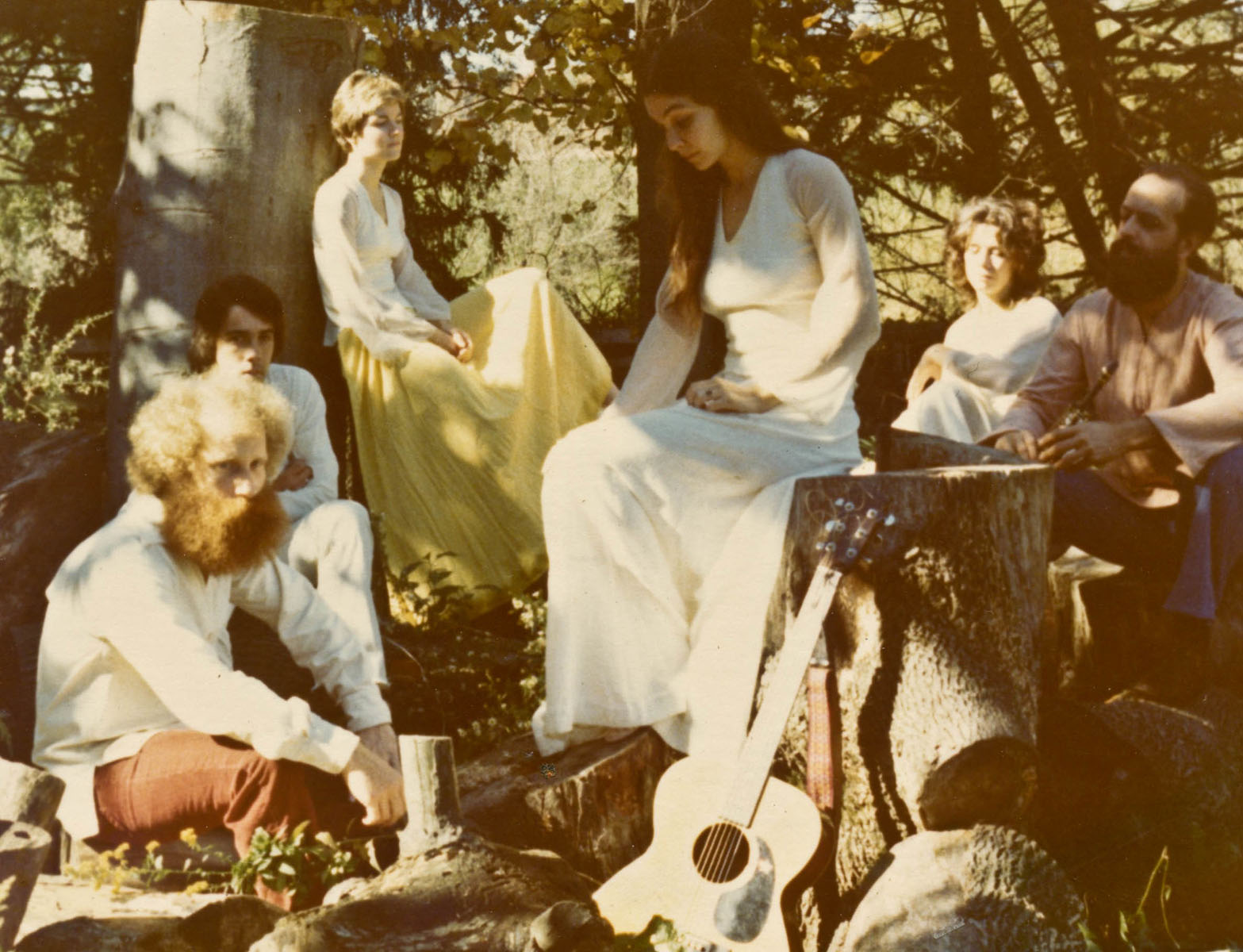
“The idea was to create a music free of identifiable genres”
The project was formed by founder and director Joe Clark on saxophones and keyboards; Rusti Clark on viola and guitar; Michael Smith on drums and percussion; and Wall Matthews on guitars, keyboards, and percussion. How did you know each other and what led to the formation of the project?
Wall Matthews: I first met Joe Clark around 1972 in Baltimore, Maryland. I had finished touring with singer songwriter Biff Rose and had settled back in the city. I was at loose ends, not really sure what to do next. A local folksinger, Michael Hunt, who was running a club called The Classroom suggested I meet Joe, who was musical director for Bob Brown, a local singer songwriter signed to Richie Havens’ Stormy Forest label. Joe also was fronting the first iteration of Entourage, a loose amalgam of local musicians who performed Saturday nights at an after-hours club called The Bluesette. We played for a while and he suggested I join them. Joe was commuting to Baltimore every weekend from Bennett College in Millbrook, New York. After a while this came to an end, and Joe returned to Millbrook where he would form the next version of Entourage, a trio with Michael Smith and Rusty Clark, who were working with him in Bob’s group.
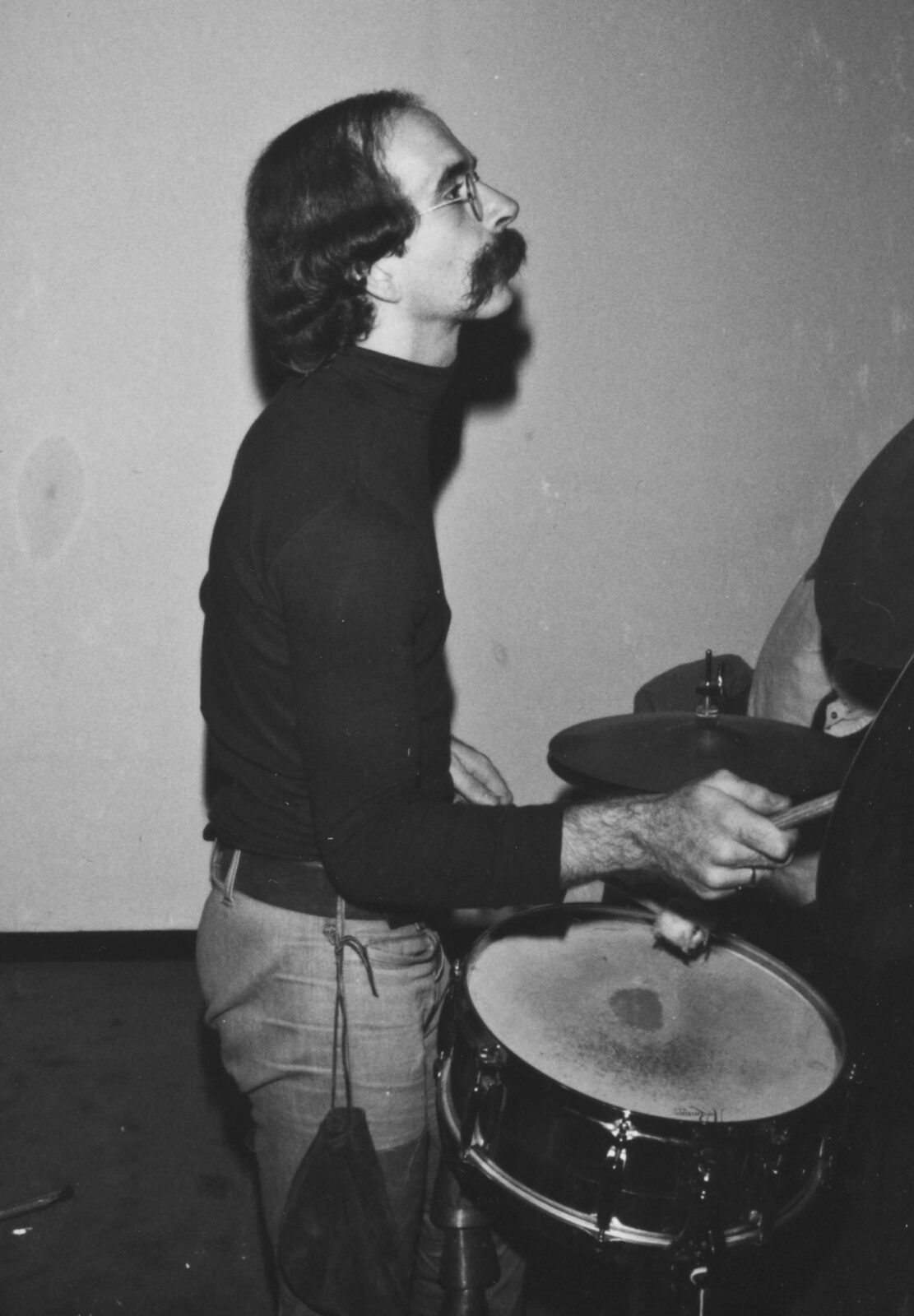
As they were finishing work on what would become the first Folkways recording, Joe invited me to Millbrook to meet them. The connections and chemistry were immediately apparent, especially with Rusty who was like a long lost brother. After another stint with Biff, I was living in San Francisco. Joe called from New London, Connecticut where he was now working for the dance department at Connecticut College. He said Richie was getting ready to produce the group’s next album and I should head east if I wanted to be included. I ended up renting a tiny studio apartment in the same building that Joe lived in. Rusti showed up soon after, and the three of us got together every day to work on the music that would become the second Folkways record, ‘The Neptune Collection’.
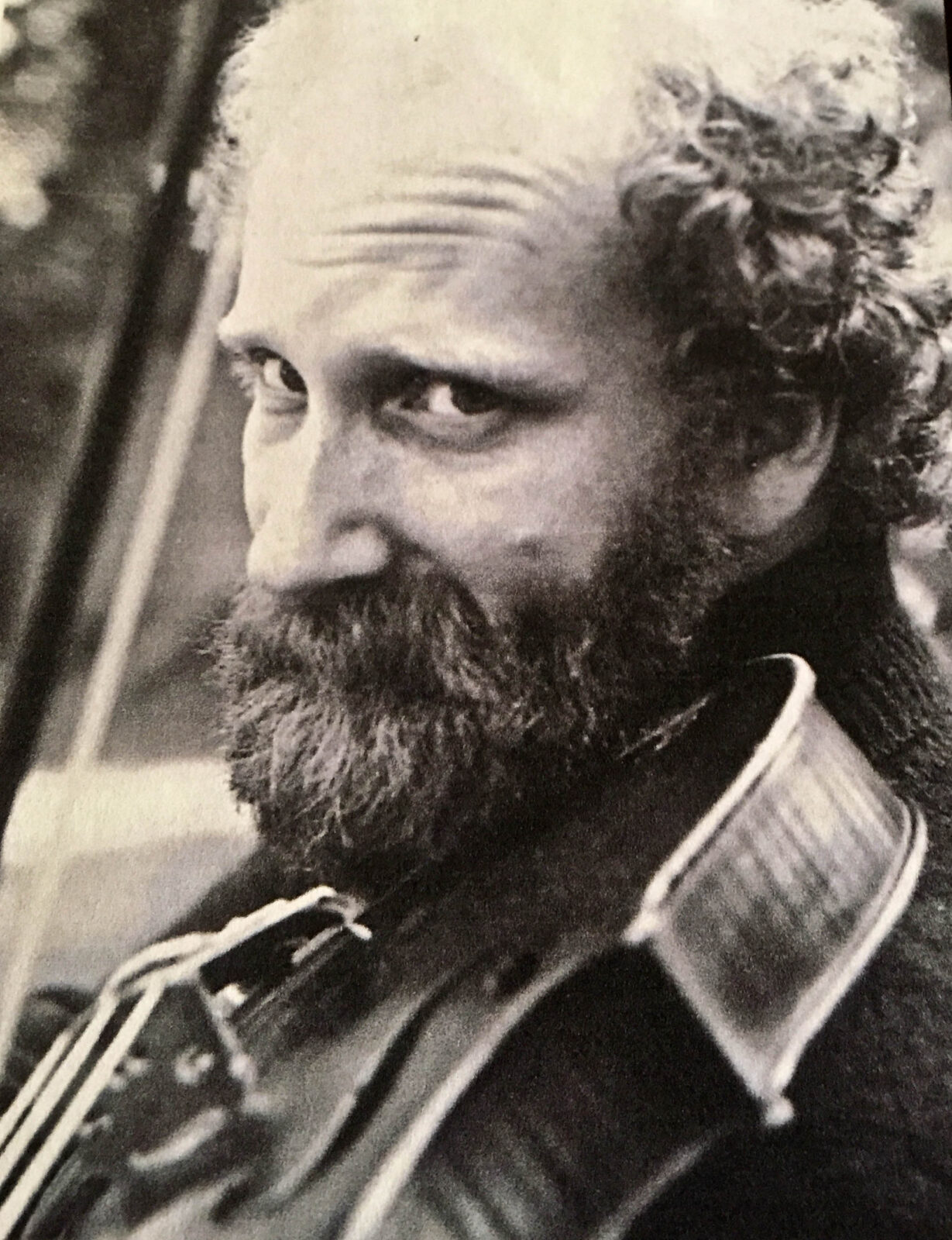
“A clear vision of creating a non-idiomatic music”
Your debut album on Folkways Records is an extremely complex release that features saxophone, keyboards, percussion, viola, recorder, guitar, drums and thumb piano and so on. Was there a specific concept behind making it?
Joe, an extremely talented bebop saxophonist and classically trained pianist, had a clear vision of creating a non-idiomatic music that was based on what he called “that flow feeling”. The idea was to create a music free of identifiable genres by eliminating common musical signatures, and at the same time, allowing each player’s influences of world, jazz, classical, and rock to mix together to create a unique sound.
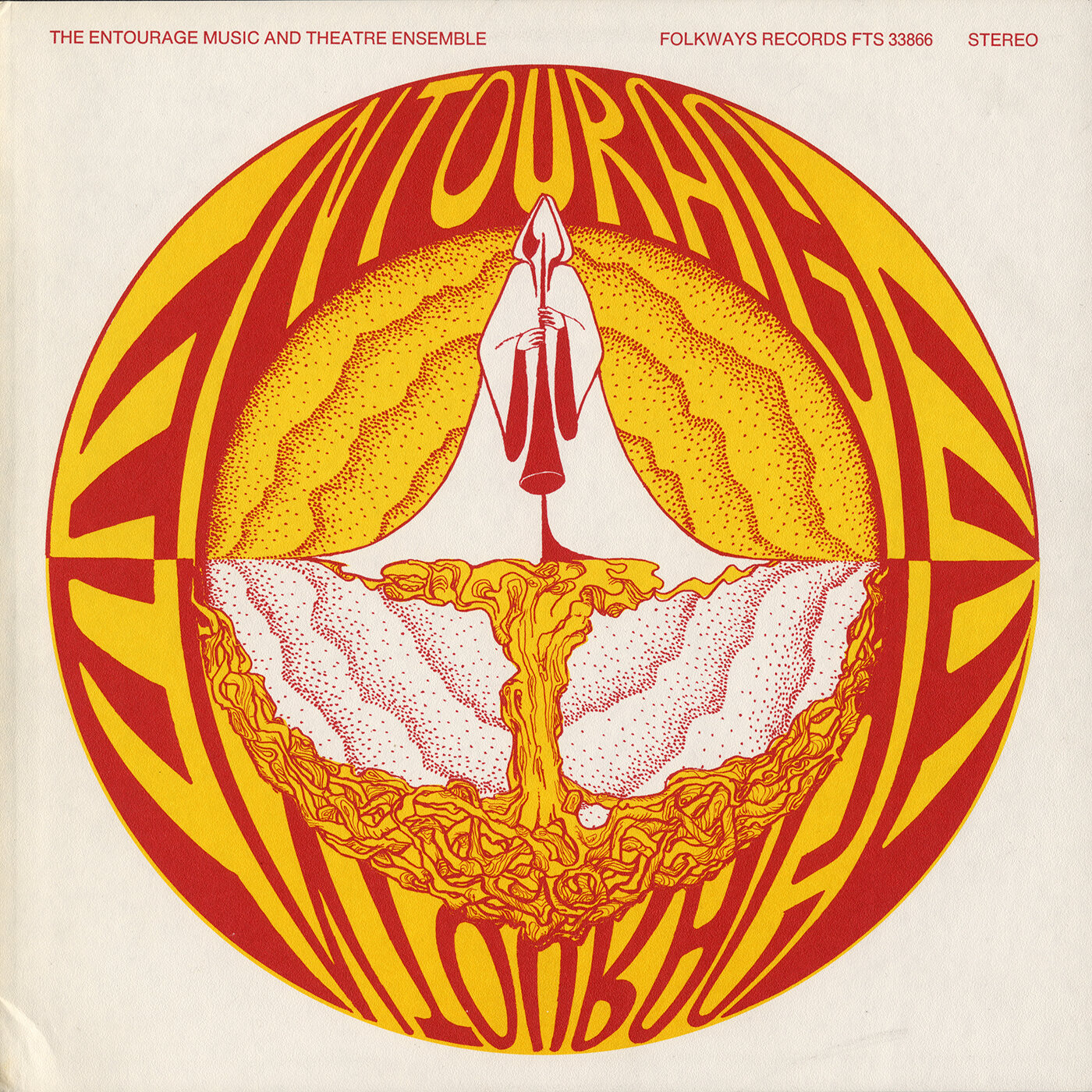
Listening now, what are some of the recollections from the album making?
The music on the first record was directly influenced by the vibrations around Millbrook, which had a magical feel to it at that time in the early 1970’s. There was a special sound that was formed from extended “flow feeling” improvisations that formed the basis for the compositions that would end up on the record.
Compositions were designed to accompany the theater… Can you elaborate on the main idea?
The idea of combining images with sound and movement was basic to the group right from the start. It allowed for each performance to have a sense of ritual which naturally fit into the world of theater.
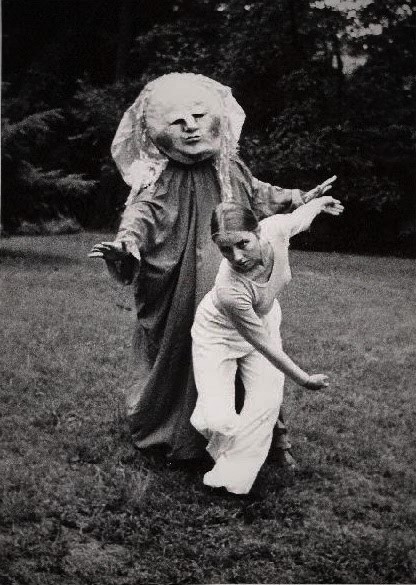
How do you see the relationship between the instrument and the space where the instrument is recorded?
Of course the physical and acoustic properties of any environment will affect the sound of the instruments and will play a role in how the music develops. Perhaps even more importantly, the environment in which the work was born is always a major factor in establishing a specific identity for the music. Just as the feeling of Millbrook influenced the first record, so too did the watery mist filled atmosphere of the Long Island Sound permeate ‘The Neptune Collection’. This music was recorded in purely analog times, pre-digital if you will, so every studio had a specific effect on how the music sounded. For example, if you listen to alternate versions of tracks from ‘The Neptune Collection’ that were released on the Tompkins Square retrospective in 2018, you can clearly hear a different sound from the originals, and therefore you find significant differences in how each piece evolves.
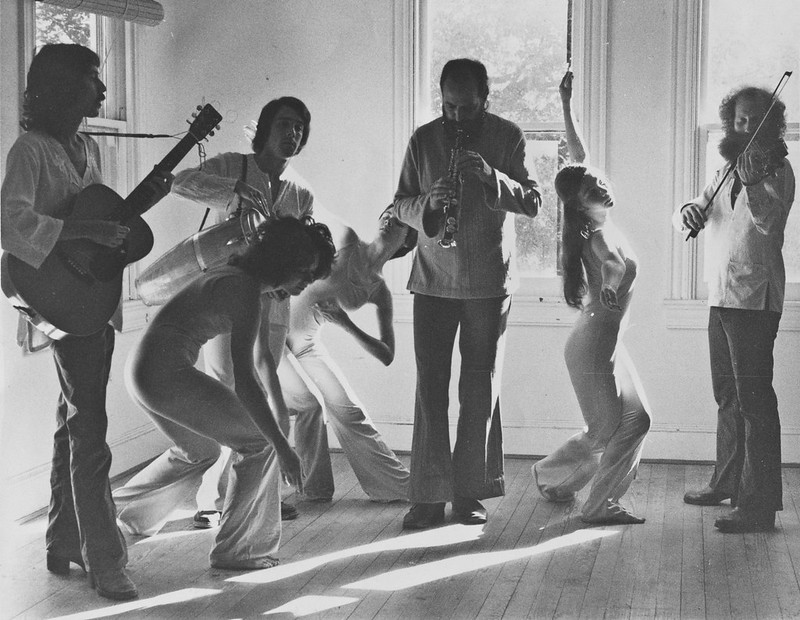
“Our live performances would always discover new aspects developing along the way”
Do you discover new aspects of your songs developing in front of an audience?
Because so many of our compositions involved set structures that acted as stepping stones between open paths of improvisation, our live performances would always discover new aspects developing along the way. The focus and intensity that each audience brings to any performance naturally affects development. One can feel the attention when audiences are attuned to the music, and this allows for a sense of trust between audience and performers that allows the exploration of the music to deepen in the moment.
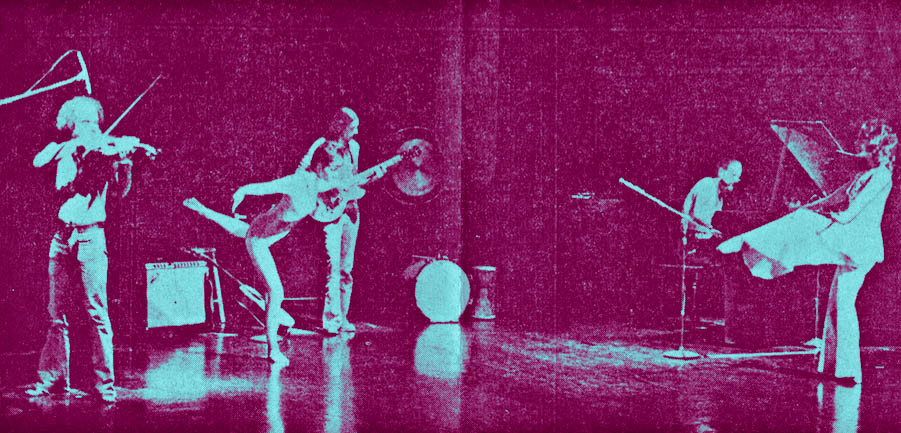
What are some of the most memorable performances?
Early on, we performed in Hartford, Connecticut at a place called Wooden Ships. A trailblazing choreographer and improviser, Margaret Beals, joined us and for the first time we experienced how the powerful effect of combining music and dance in a theatrical way could transform performance and draw in an audience. The Theater Project in Baltimore, run by Philip Arnoult, was also an early supporter and we had many magical performances there.
Our 1976-77 tour was really special as the group was at a creative peak. It culminated in a half hour film we created for Nebraska Public Television, called “A Ceremony Of Dreams”. It is posted on YouTube.
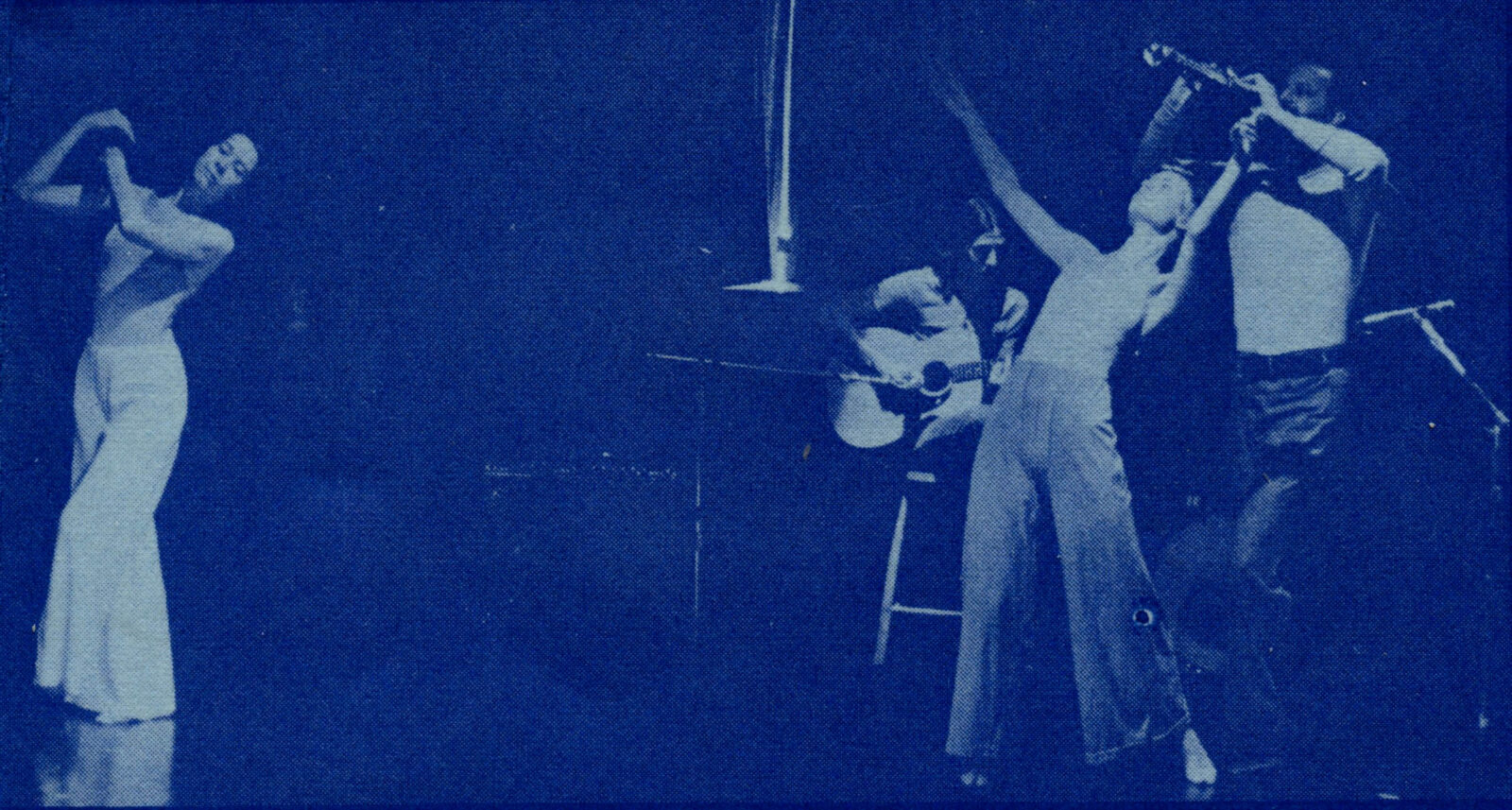
It seems that you were influenced by a very wide spectrum of music. Would you like to talk about some of the most important influences for you?
For me, in the beginning, the country blues of artists like Mississippi John Hurt and Skip James, as well as the guitar styles of folk blues artists like Dave Van Ronk, Tom Rush, and Jim Kweskin were a big influence. Then, once I heard Bert Jansch’s guitar style, as well as Donovan’s, I found a clear direction that I wanted to pursue. Of course with the blossoming of the late 60’s, influences poured in from all directions. Miles and Coltrane, as well as Hendrix, affected me just as they did everyone else. Pentangle and The Incredible String Band were strong influences as well. Terry Riley’s ‘Rainbow In Curved Air’ was a revelation, as was Weather Report’s first album. Finally, I discovered Debussy and the Impressionists and things all started to come together. All of this resulted in a desire to create a very composed music that allowed for the freedom to incorporate improvisation, hopefully without being too long and indulgent. I specifically remember playing Debussy’s ‘Sonata For Flute, Viola, and Harp’ for Rusty. We both felt like it was the same spiritual world that we lived in and showed us how truly “classical” our music was in many ways.
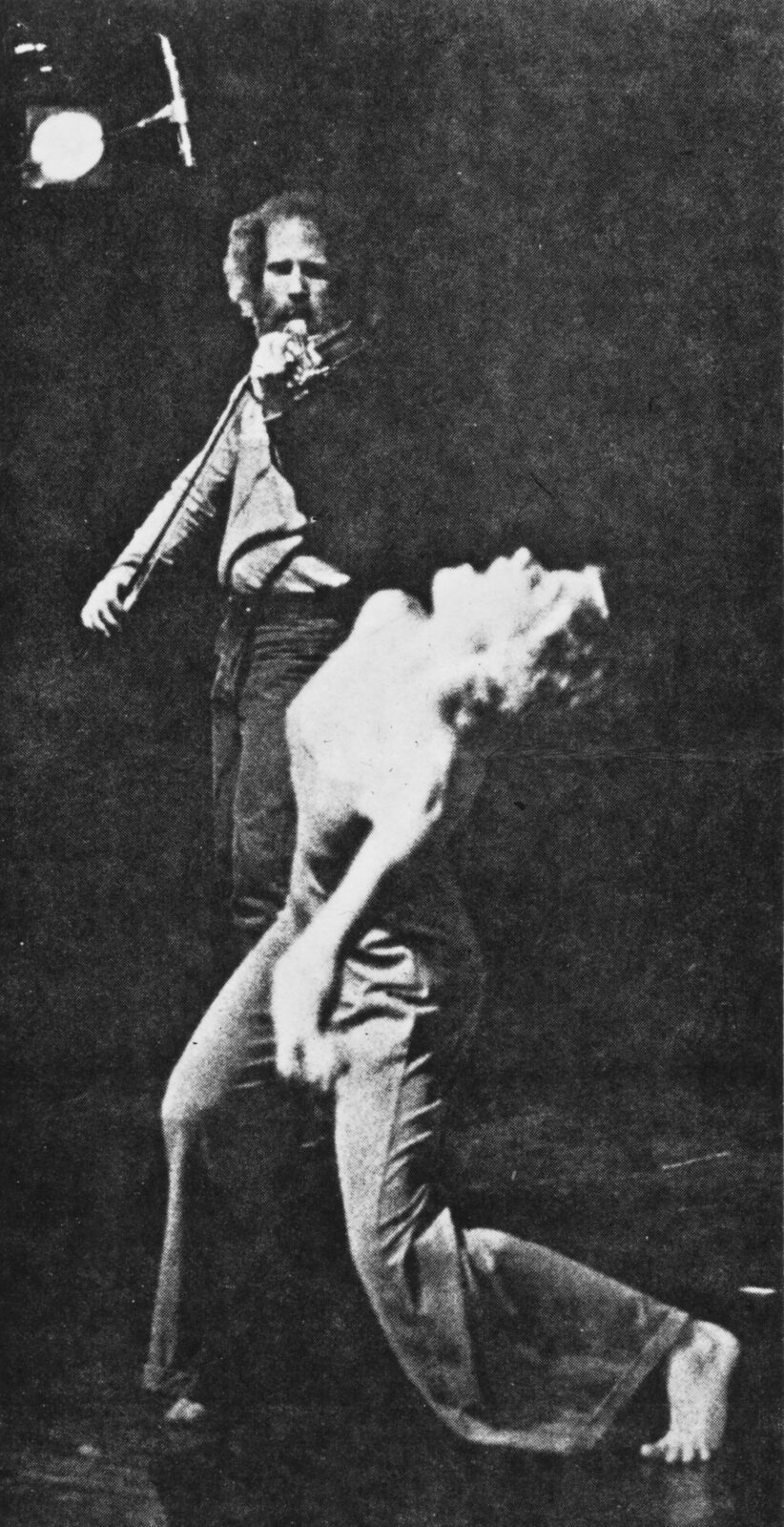
How would you compare your debut to ‘The Neptune Collection’, which was released two years later, in 1975?
Well, since I was not on the debut, you obviously have a voice that is missing. The music on ‘The Neptune Collection’ developed over a longer period, so it has a more focused and developed character from the first record which involved more open ended improvisation. However, both recordings have that “sound” that is unique to Entourage, and the Tompkins Square retrospective really furthers the documentation of it.

Smithsonian Folkways Recordings recently issued ‘The Mermaid’s Purse: Live at Chatham College, 1976’, would you like to tell us what’s the story behind the material?
We were near the end of our 1976 tour, and we had a show at Chatham College which was recorded while being broadcast over the campus radio station. After Joe passed in 1983, I became the overseer of Entourage by his brother’s wish. I received a few boxes that Joe had saved over the years and a cassette recording of the show happened to be in there. It turned out to be excellent quality, especially considering the time in which it was made.
When Folkways expressed interest in it, I was very pleased. It is the only good quality live recording of the group at its most mature phase and contains many excellent versions of tracks from both LPs, as well as a number of unreleased compositions that exist only here. It is a great testament to the remarkable live skills of the group, especially as regards the empathic ability we had to anticipate and support each other on stage.
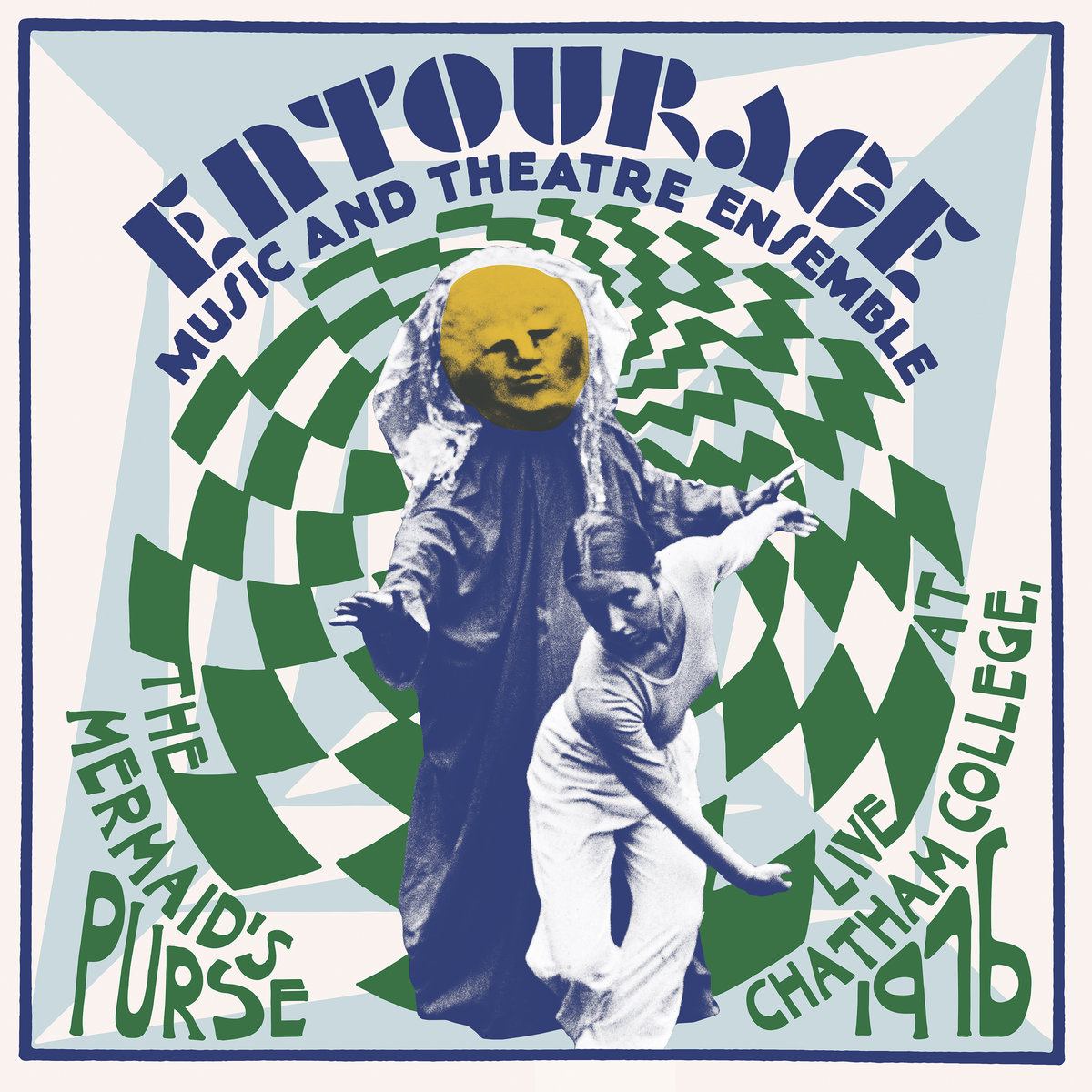
“The magic came from the twin manifestations of dance that flowed like music and music that flowed like dance”
This is truly a stunning sounding audio recording of your performances… it must have been magic to see you live!
Thank you! In this recording, I can so clearly hear just how in sync we were playing live. While there is no video record of the dancers, it is important to point out how much they brought to every performance. We were lucky to be in concert with artists who were every bit as dedicated and focused on movement as we were on the music. The magic came from the twin manifestations of dance that flowed like music and music that flowed like dance.
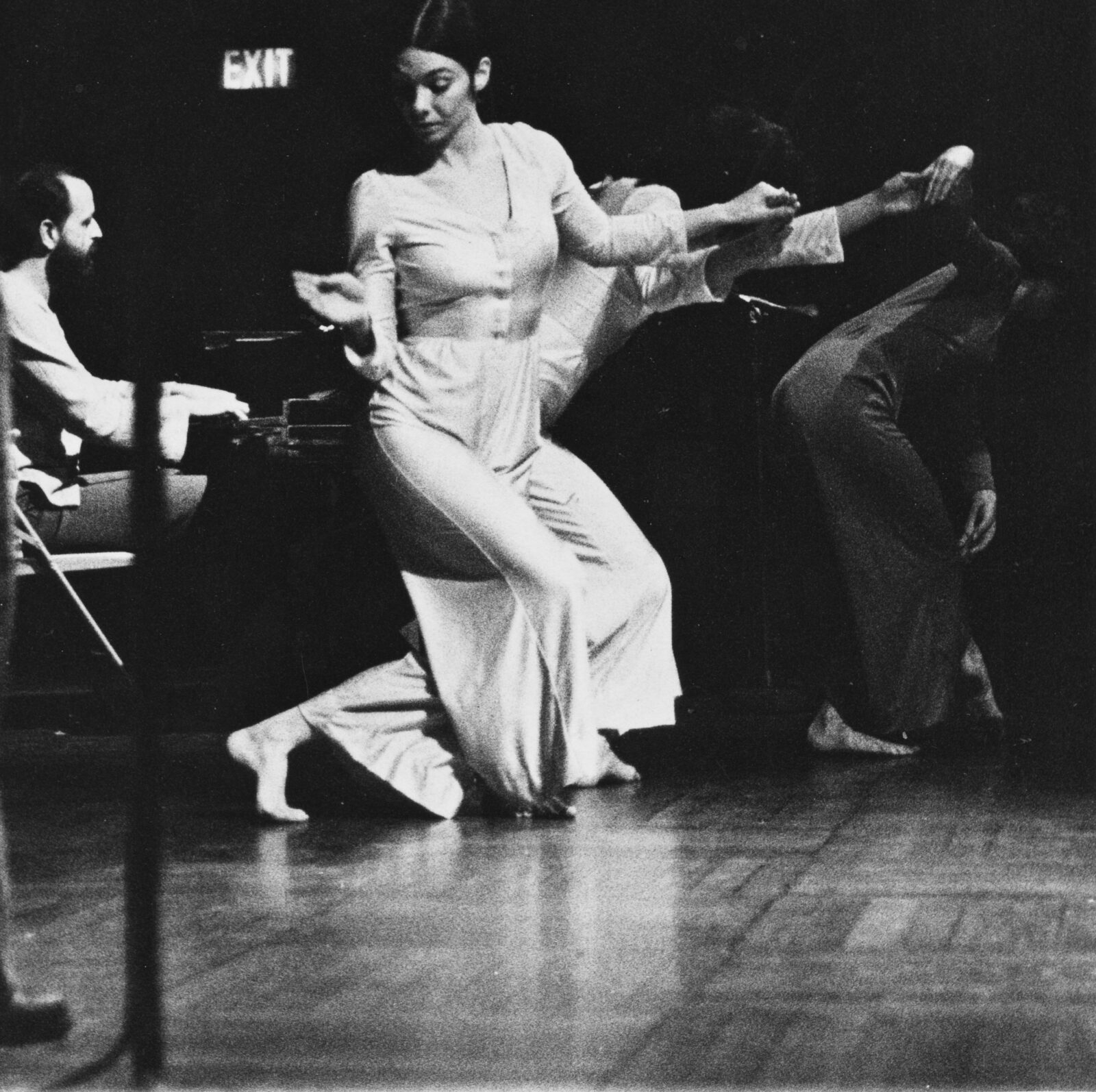
The group itself was active until 1983, when Joe Clark sadly died. Is there more material available to be potentially released in the near future?
Yes, there is quite a bit. There are some very good quality recordings, both live and some studio, of the earliest form of Entourage, which was quite different musically from how it would evolve. In 1976, we were commissioned by the American choreographer, Murray Louis, to create a two hour score for the ballet, Cleopatra, for the Royal Danish Ballet. While a number of tracks were issued by Tompkins Square in 2018, there are still quite a few unreleased recordings, all in excellent quality.

I also have a copy of a demo tape Joe assembled in 1974, as well as the cassettes of the rehearsals from which it was collated. This is unique in that it is a rare form of the group that consisted of Joe, Smitty, myself, and the extraordinary bassist and composer Terry Plumeri, who passed away in 2016. As you may know, Fourtet used a large sample from ‘Neptune Rising’ from ‘The Neptune Collection’. It was on the track ‘She Moves She’, on his 2004 recording ‘Rounds’. As a result of the positive response it generated, I am thinking about making the multi-tracks I possess available to remix artists who might be interested in them.
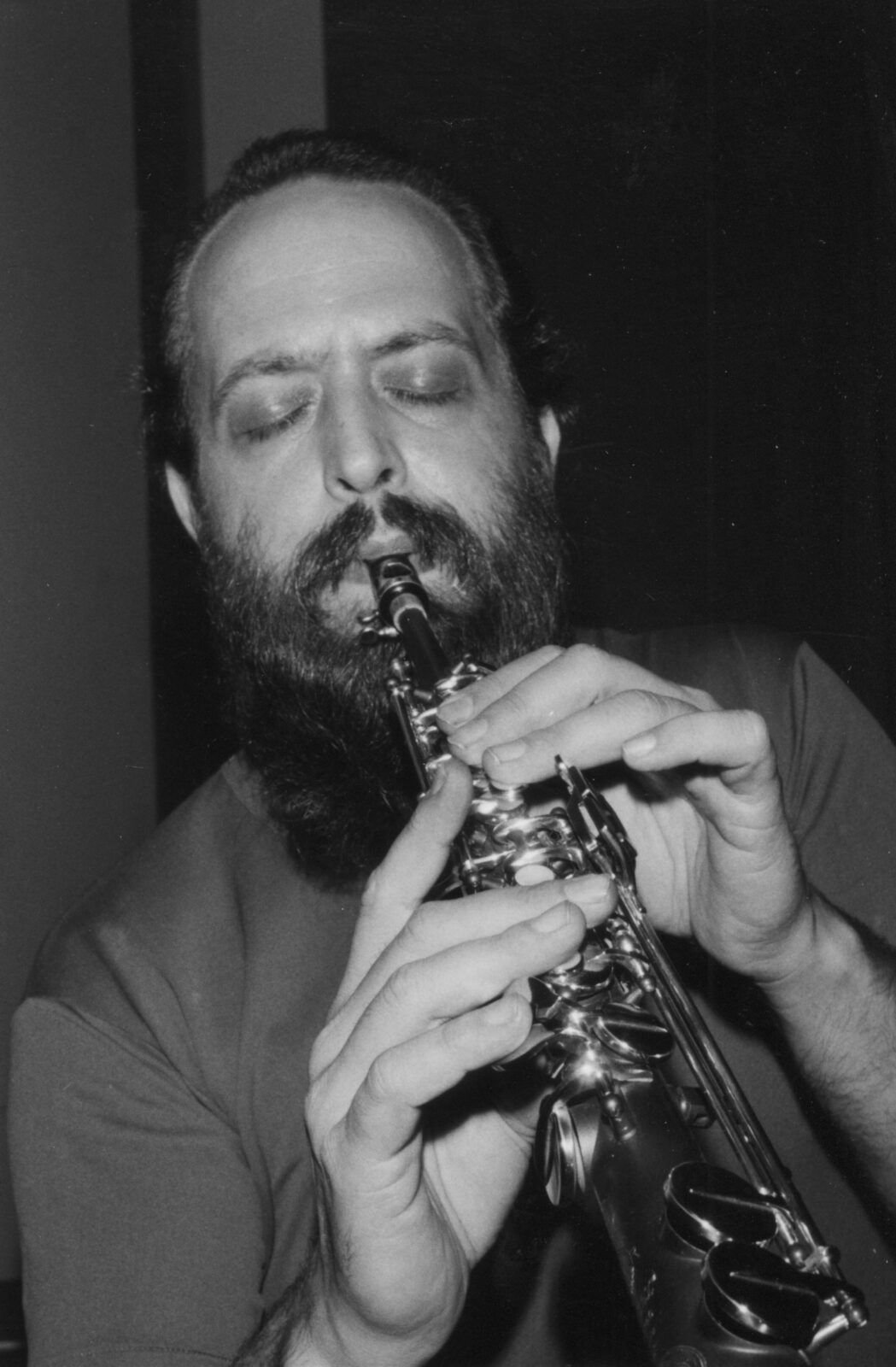
Would you like to talk a bit about your background; how it all started for you? One of the first recordings with your music on it is a flexi-disc (American University Students Association – Earth Matrix Ltd.). You performed ‘Gentle All Around (Warmth)’.
For some reason, when I was fourteen, I found myself drawn to a cheap old acoustic guitar. I learned a few chords to accompany the old folk song, ‘Red River Valley’ and I was hooked. There was a kid in my neighborhood, Jonathan Pearthree, who had been playing guitar for awhile. He was a little older than me and he showed me a few things that introduced me to finger picking. Soon after that I learned how to play ‘Cocaine Blues’ the way Dave Van Ronk did, and I was on my way into the world where the guitar can elicit multiple voices, like an orchestra. I immediately felt the need to write my own music. When I was in college a few years later, I had the good fortune to meet another guitar player, Mac Walters, who was traveling the same road. This resulted in our forming Warmth. We performed in coffee houses in Maryland, Virginia and Pennsylvania.
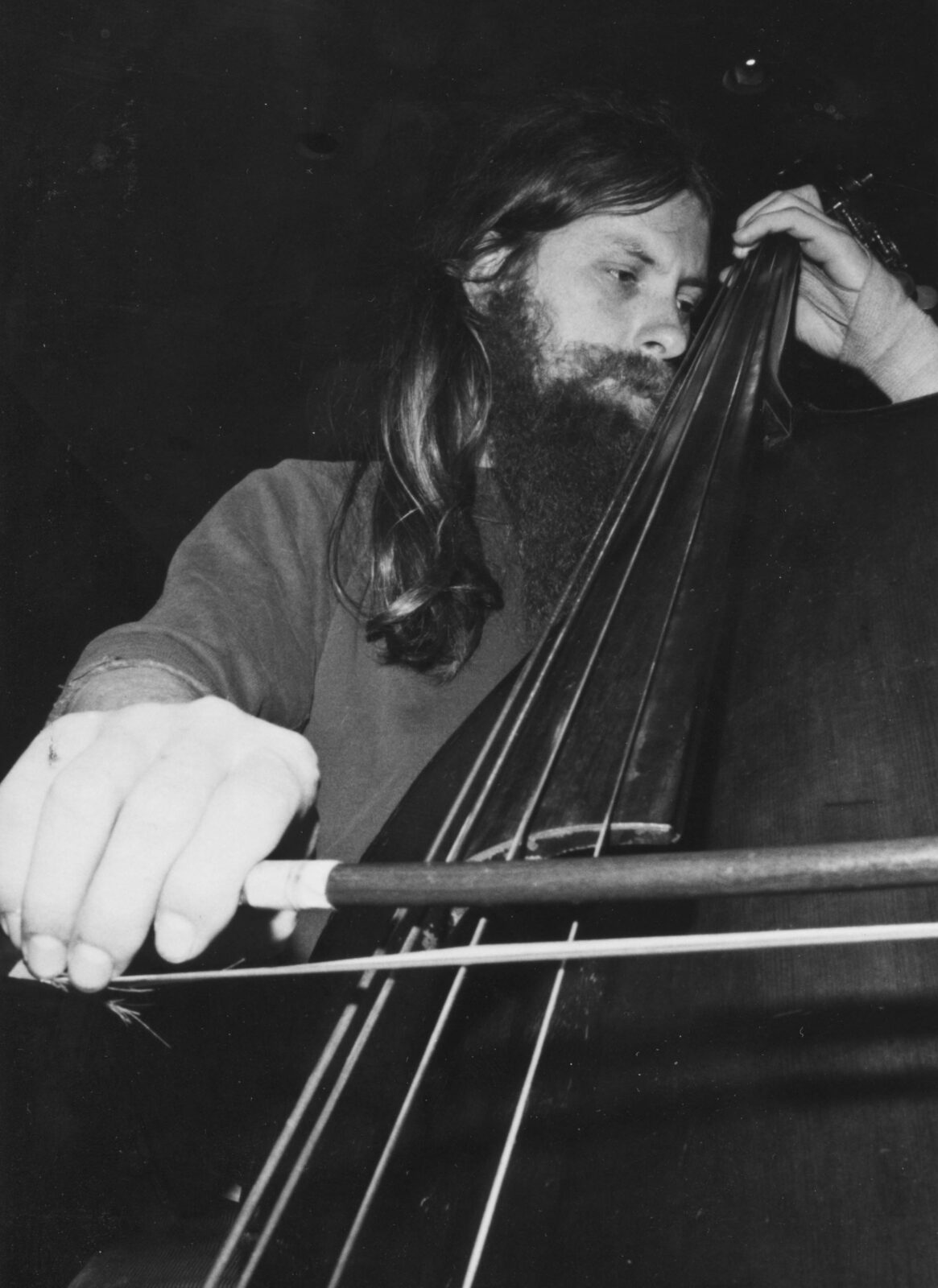
How did you first get in touch with Biff Rose? What’s the story behind your album, ‘Hamburger Blues?
When I was nineteen, I was working as a waiter at a dinner theater in Baltimore along with a drummer, Mike Elliot. We had a guitar and drum duo called Harbour. There was a small spinet piano in the laundry room. When I had spare time, I would sit there and try to teach myself things I loved in the solo piano ECM recordings by Chick Corea and Keith Jarrett. A woman who I worked with was close with Biff and told him about me. He was recording his third album at the time for Buddha Records and was looking to have a band to support him. So Mike and I met him, had a few rehearsals, and the next thing I knew we were playing with him in places like The Bitter End in New York and The Troubadour in Los Angeles. That lasted for about a year, and Biff went off in another direction. Then in 1973, he called and asked me to join him on the road again. He had been listening to a lot of jazz and wanted to bring that into his performances. He had a pretty unique approach to improvising in that he did not like to stay in any one key or rhythm for too long, kind of like Thelonious Monk on acid. Somehow I was able to connect with his approach, and we developed an intuitive bond. We played at a club called Charlotte’s Web, in Rockford, Illinois. It was their tenth anniversary, and they were recording the shows. They had hired Dave Ray, who had been in the group Koerner, Ray and Glover. They were in the forefront of the folk blues movement in the early 60’s. Their Elektra recordings had been a big influence on me. Dave had a recording studio and a small label in Minnesota called Sweet Jane Ltd. He was taken with what we did and invited us to record an album which is how ‘Hamburger Blues’ came to be.
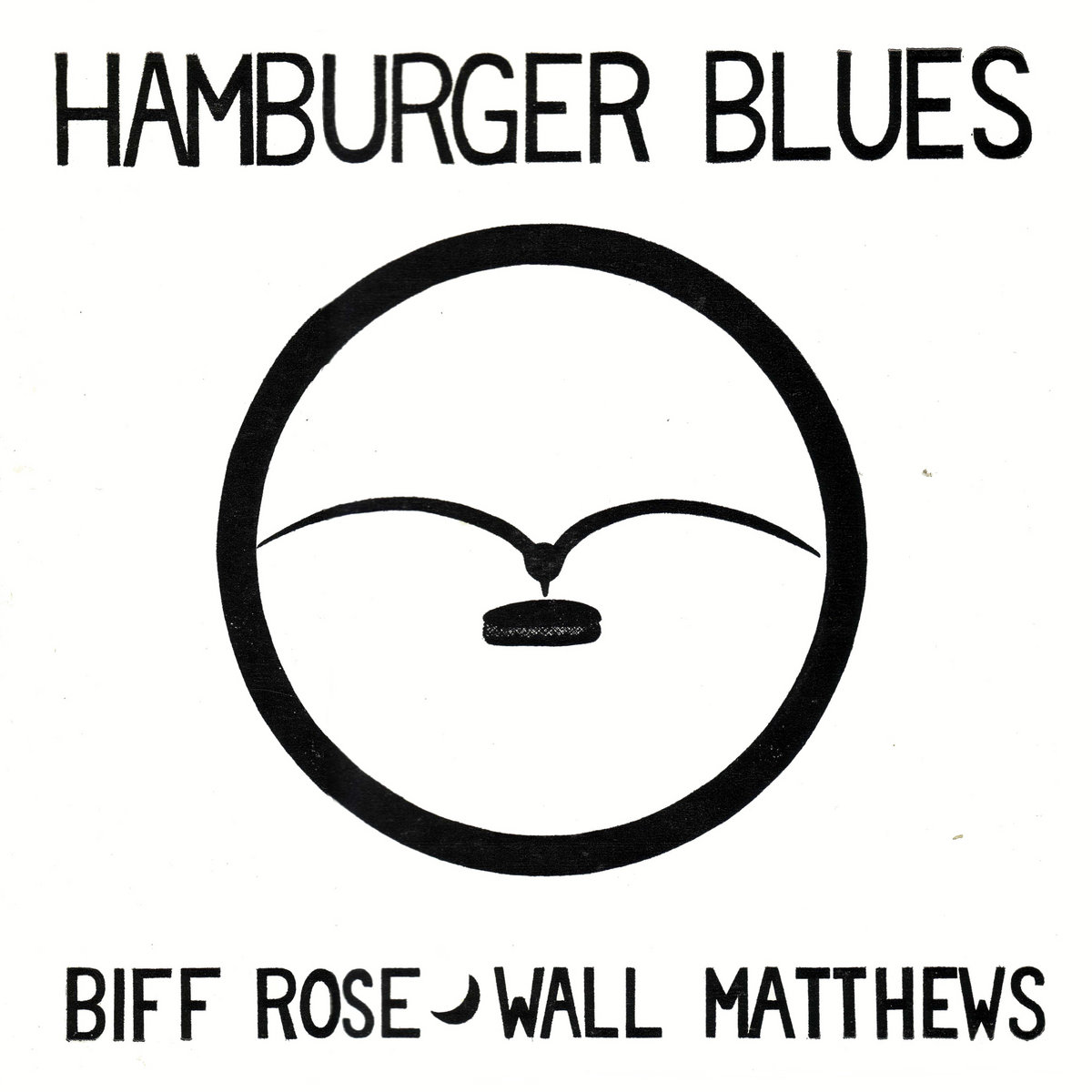
Looking back, who influenced your guitar playing the most and did influences change during the years?
Without a doubt I would say Bert Jansch, and yes, many, many influences affected me over the years, but I think the core of any music I create is always filtered through the lens of the guitar style I developed from that starting point. Even when I play or write with piano, it is as if I have two guitars.
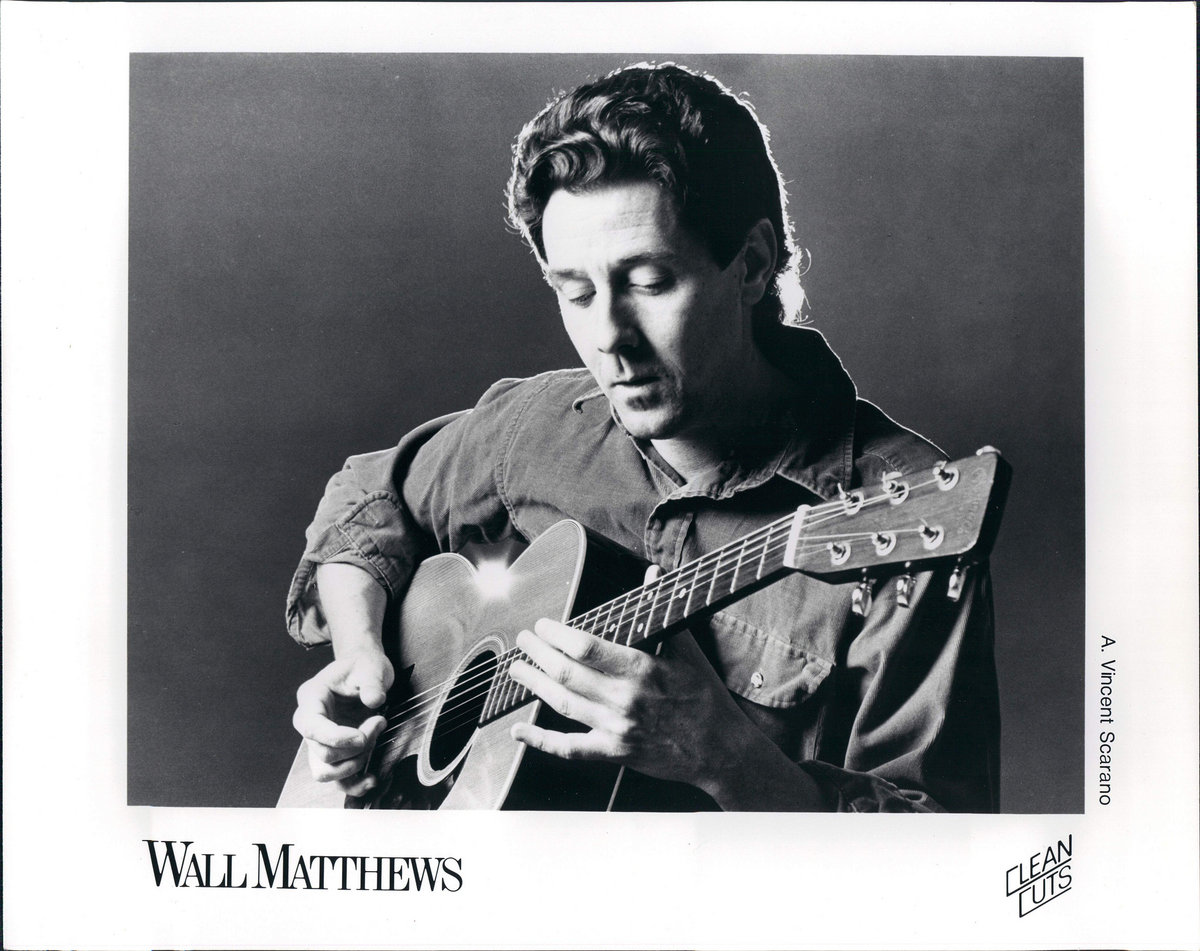
What currently occupies your life?
Music and family are my main focus. One of the great gifts of my time with Entourage was meeting my wife, Wendy, who was one of the principal dancers. Now 46 years later, we are blessed to have an incredibly close family, children and grandchildren, with whom we are fortunate to share lots of time. In addition to continuing to write new things, I am going through my archives which are fairly large after fifty some years and preparing releases for Bandcamp. I also spend time doing participatory music with seniors with Alzheimers and dementia. I also teach a college course, Musical Concepts For Dance.
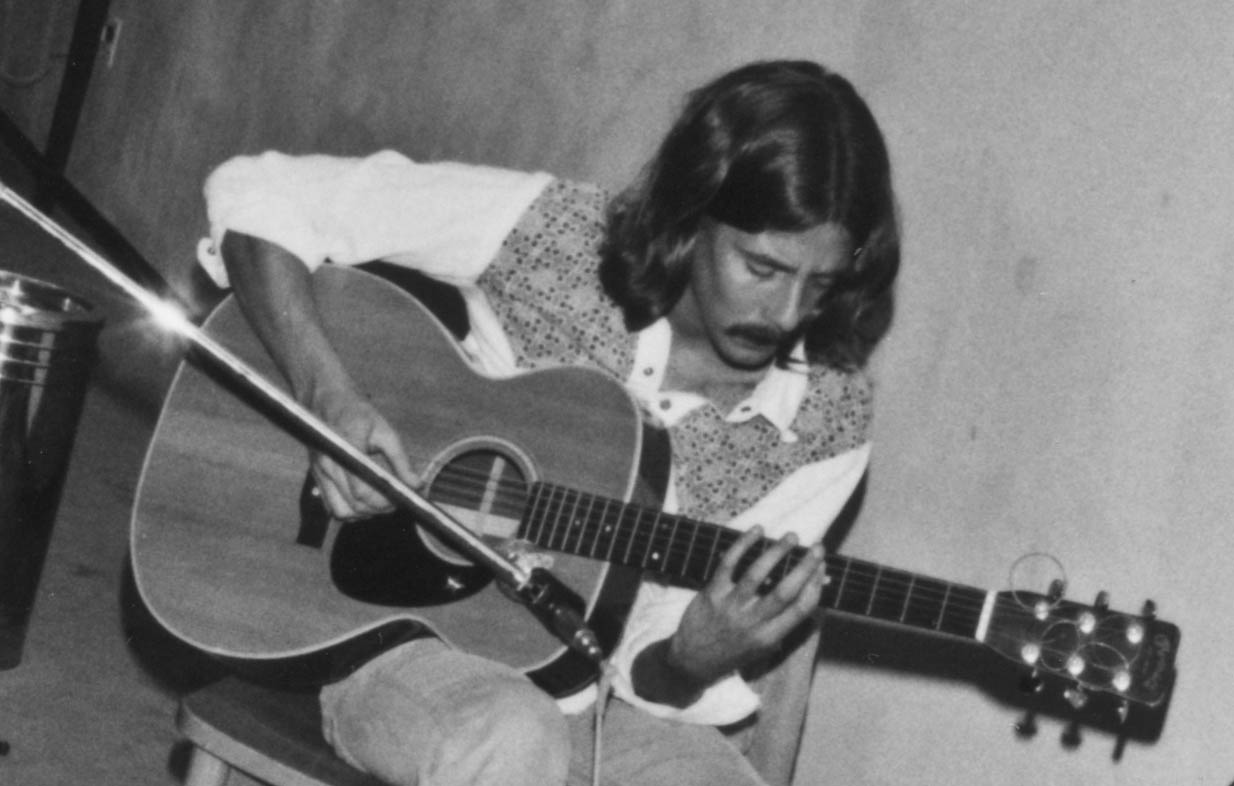
Thank you for taking your time.
My pleasure. Thanks for having me.
Klemen Breznikar
Entourage Music Official Website
Wall Matthews Official Website / Facebook / Bandcamp / Bandcamp / YouTube
Smithsonian Folkways Recordings Official Website / Facebook / Instagram / Twitter / Bandcamp / YouTube

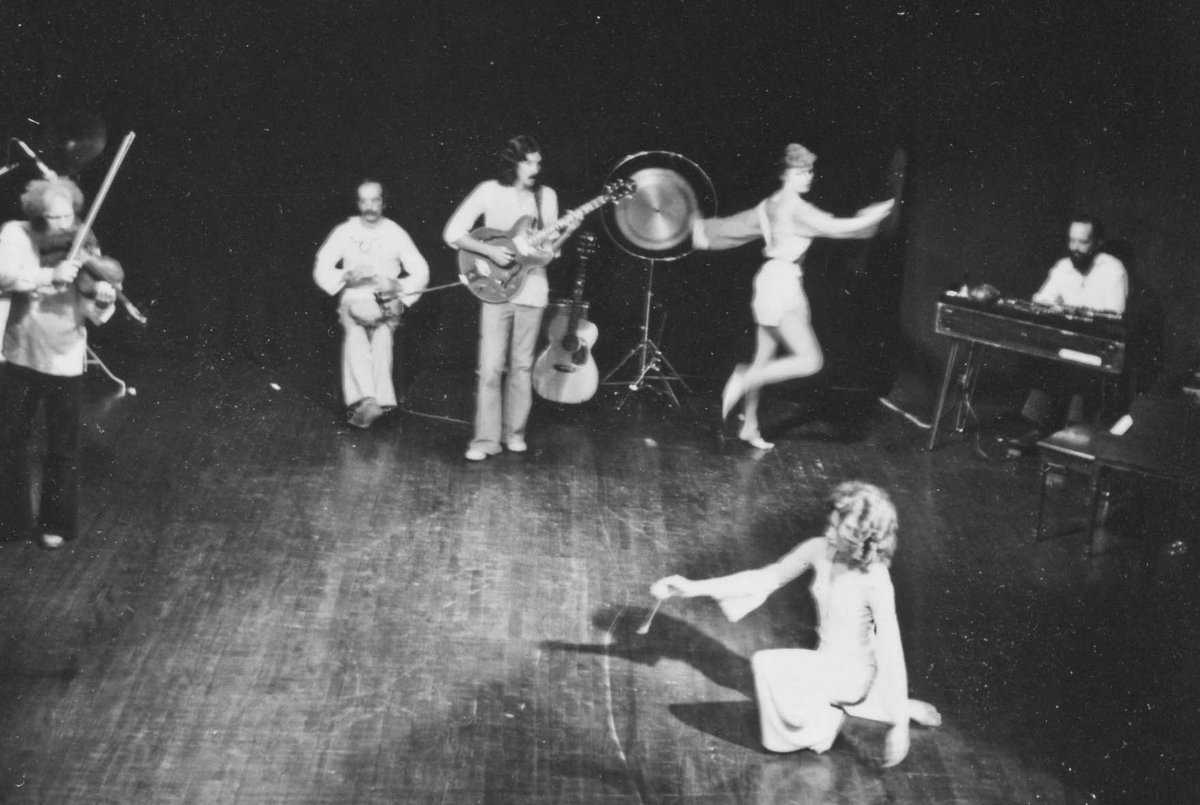
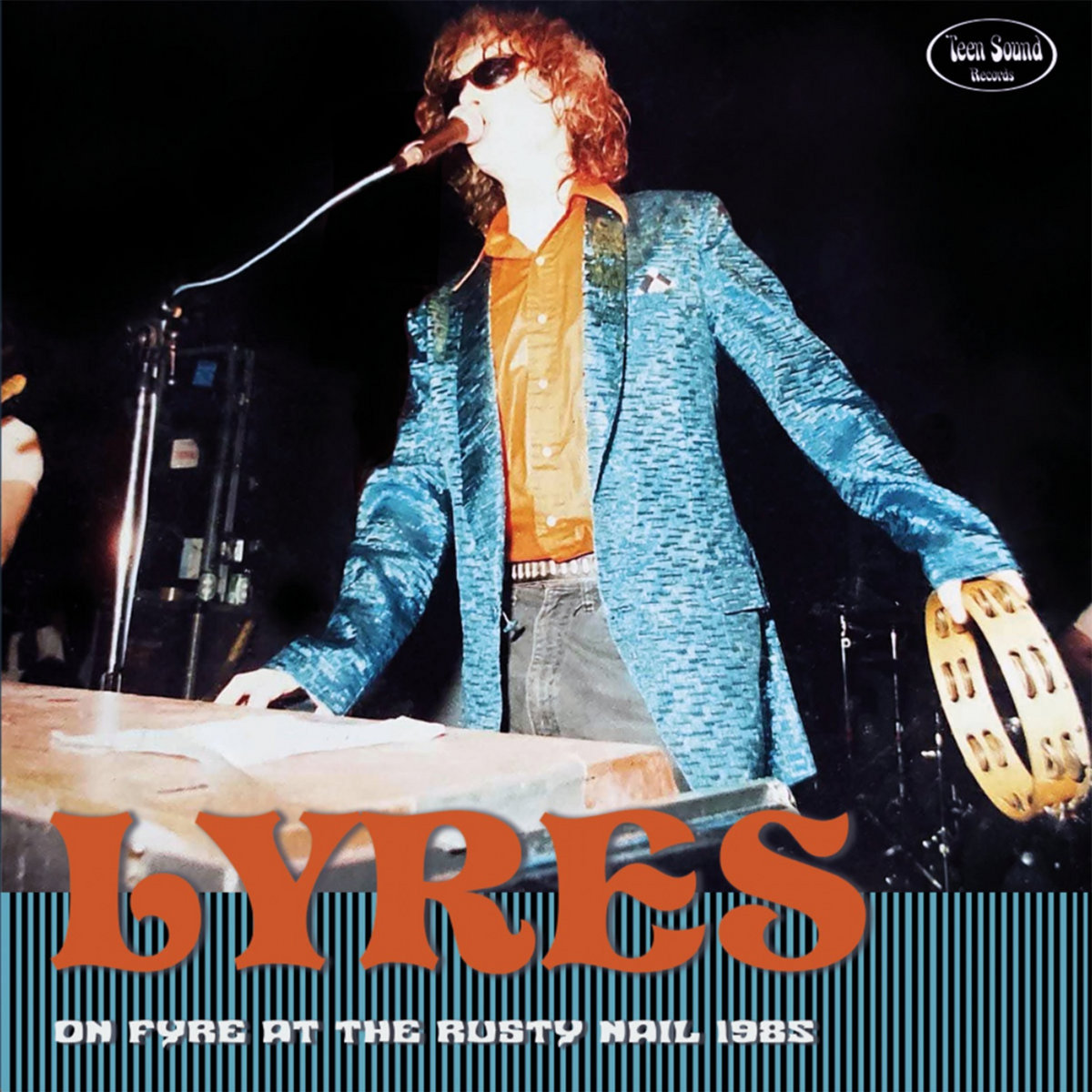

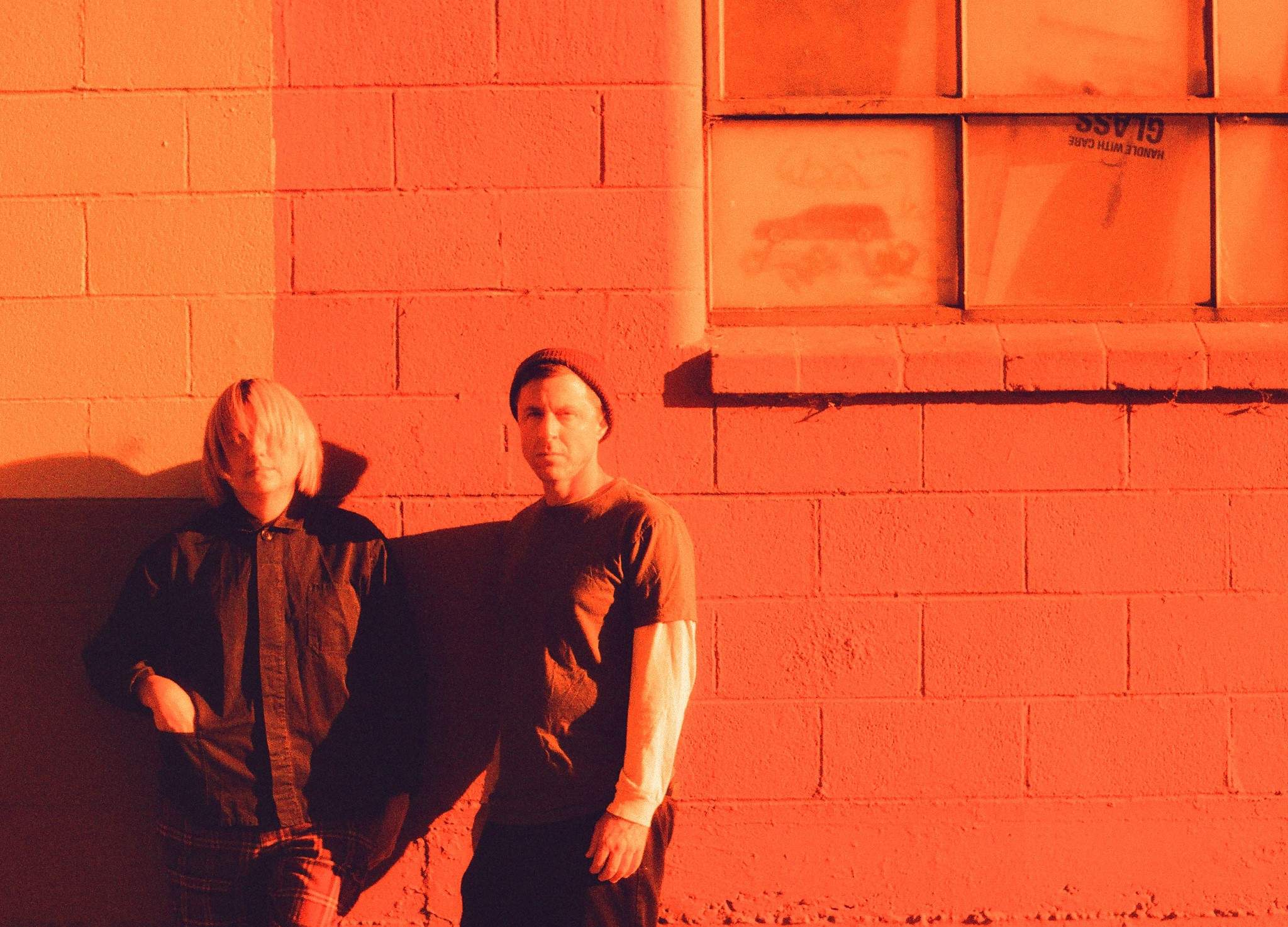
Thank you Klemen Breznikar for this superb article about Entourage!